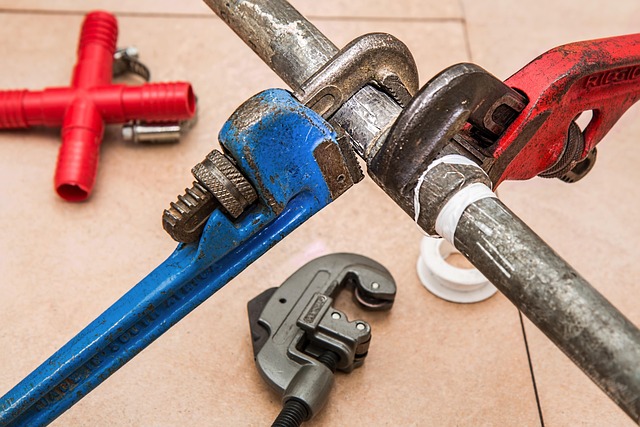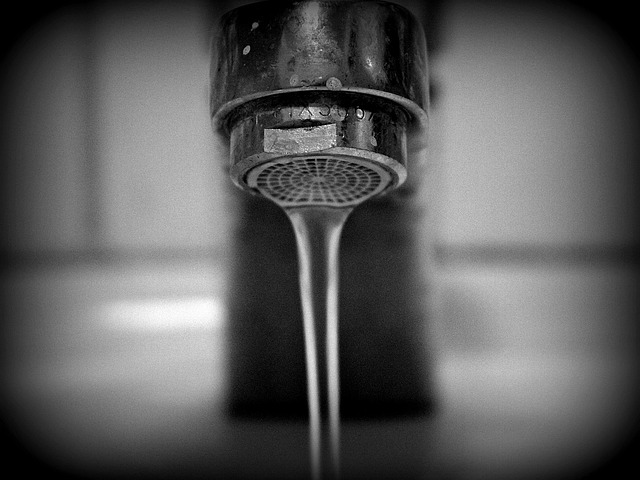This text compares traditional storage, tankless, and heat pump water heaters, focusing on material costs and long-term savings. Storage tanks are affordable but require regular maintenance and potential replacements due to corrosion. Tankless heaters, though initially more expensive, offer significant energy efficiency by heating water on demand, reducing utility bills and eliminating tank-related expenses. Heat pump heaters have the highest upfront costs but provide exceptional energy efficiency, making them cost-effective over time. When deciding, consider installation, maintenance, and material costs beyond the initial price to determine the best long-term option for savings and reliability.
Looking to cut your water heating bills? Understanding the material costs, energy efficiency, and long-term savings of different water heater types is crucial. This guide compares traditional storage heaters, tankless options, and heat pump models, delving into their respective material costs and installation expenses. Discover how each option can impact your wallet over time, helping you make an informed decision for your home’s hot water needs.
- Material Costs of Traditional Storage Water Heaters
- Tankless Water Heaters: A Cost-Effective Alternative?
- Heat Pump Water Heaters: Energy Efficiency Meets Affordability
- Comparing Installation and Maintenance Expenses
- Long-Term Savings: A Comprehensive Analysis
Material Costs of Traditional Storage Water Heaters

Traditional storage water heaters, often referred to as tank-style water heaters, are a common choice due to their affordability and reliability. When considering the material costs, these units typically consist of an insulated tank made from steel or porcelain-coated metal. The tank serves as a de facto storage compartment for hot water, allowing for a continuous supply when needed. The primary materials involved include the tank itself, along with components such as heating elements, insulation, and a temperature control mechanism. These components collectively contribute to the overall cost of the water heater, making it essential to evaluate not just the initial purchase price but also the material costs associated with long-term performance and energy efficiency.
Tankless Water Heaters: A Cost-Effective Alternative?

Tankless water heaters, also known as on-demand or instant water heaters, are gaining popularity as a cost-effective alternative to traditional storage tank models. Unlike their tanked counterparts that heat and store hot water continuously, tankless heaters only heat water when you turn on the faucet or showerhead, reducing energy consumption and associated costs. This is where one of the key advantages lies—the significant reduction in material costs over time.
While initial installation costs for tankless systems might be higher due to the advanced technology involved, they offer long-term savings. Without a storage tank, you eliminate the need for regular maintenance, replacement, or repair of the tank itself, which can account for a substantial portion of water heating expenses in traditional setups. This makes tankless heaters an attractive option for homeowners looking to lower their energy bills and reduce their environmental footprint.
Heat Pump Water Heaters: Energy Efficiency Meets Affordability

Heat pump water heaters are a growing trend in the water heating industry, and for good reason. These innovative systems offer unparalleled energy efficiency, potentially reducing your utility bills by significant amounts over time. Unlike traditional electric or gas heaters that generate heat directly, heat pumps extract warmth from the surrounding air (or ground) and transfer it to the water in your tank. This process is incredibly efficient, especially in milder climates, making them a cost-effective option for homeowners.
In terms of material costs, heat pump water heaters may initially be more expensive than standard models, but their long-term savings can make up for this difference. The efficiency of these units means they require less energy to operate, leading to reduced running costs over the lifespan of the appliance. This makes them an attractive option for those looking to save money and reduce their environmental impact simultaneously.
Comparing Installation and Maintenance Expenses

When comparing water heater types, it’s crucial to look beyond initial purchase prices and consider installation and maintenance expenses over time. Different heaters have varying material costs, with tankless systems often requiring more expensive components like heat exchangers and gas lines. On the other hand, traditional storage tanks might be more affordable upfront but can accrue higher maintenance costs due to regular drain-and-flush cycles and potential replacement parts.
Regular upkeep plays a significant role in determining long-term expenses. Tank water heaters generally require annual inspections and occasional element replacements, while tankless models may need less frequent maintenance but can face issues like mineral buildup that necessitate specialized cleaning. Comparing these costs across different heater types is essential for making an informed decision that balances initial investment with ongoing savings.
Long-Term Savings: A Comprehensive Analysis

When considering long-term savings, it’s crucial to look beyond initial installation costs and examine the overall efficiency and energy consumption of different water heater types. While tankless water heaters may have a higher upfront price tag due to advanced technology and materials, they consistently offer significant energy savings over conventional storage tanks. Over time, these savings translate into substantial reductions in utility bills, making them a more cost-effective investment despite the initial outlay.
A comprehensive analysis of material costs further underscores this point. Tankless heaters utilize high-quality, durable materials designed to withstand years of continuous use without degradation. In contrast, storage tanks are subject to corrosion and potential leaks, leading to premature replacement and associated disposal costs. By choosing a tankless model, homeowners can avoid these recurring expenses and ensure reliable hot water availability for years to come.






